Visions for Liberation: Third Cinema Revisited

Join us on April 14-16, 2021 for the 2021 Mellon Symposium organized by Elena Guzman, Mellon Postdoctoral Fellow and Visiting Assistant Professor of Anthropology and Visual Studies at Haverford College.
- Jump to:
- Films
- Schedule
- Watch
- Presenters
- Organizer
2021 Mellon Symposium
April 14-16
Haverford College
Organized by Elena Guzman, Mellon Postdoctoral Fellow and Visiting Assistant Professor of Anthropology and Visual Studies at Haverford, along with Ethnocine Collective: Emily Hong, Miasarah Lai, Laura Menchaca Ruiz, Mariangela Mihai. Sponsored by the Office of the Provost, the John B. Hurford ‘60 Center for the Arts and Humanities at Haverford College, and Ethnocine Collective.
When Fernando Solanas and Octavio Getino published their transformational manifesto, Hacia un tercer cine (Toward a Third Cinema) in 1969, they articulated a special power of cinema that has continued to manifest and transform in myriad ways across our world. Solanas and Getino saw film as one of the most valuable tools of communication of their time, and demanded it be taken up not only as a way to testify to social injustice, but fundamentally also, as a call to action. New contexts call for new engagements of film, and indeed, over the years, Third Cinema has been revisited again and expanded beyond the geographical imaginary to include BIPOC filmmakers in the West. The movement has created genre-bending work that critiques the widespread concerns of our times—systemic racism, incessant classism, gender violence, and that ever-enduring sin, colonization.
The symposium Visions for Liberation: Third Cinema Revisited explores the global resonances of the Third Cinema movement in the ‘here and now’ and asks how it renders for us a ‘there and then’ across its expansive contexts. Each panel of the symposium articulates how cinema is responding to the global and local sociopolitical concerns from which it emerges, and what kinds of calls to action are being made and to whom. Women and non-binary filmmakers from Palestine, Southeast Asia, Eastern Europe, Latin America, and Third spaces across the U.S. share their work and thoughts on a Third Cinema revisited and reinvented. In the spirit of Solanas and Getino’s inspired question, first posed on the pages of Tricontinental in Cuba, how, in the era of Netflix and DSLR and Vimeo, has Third Cinema continued to be the most important revolutionary artistic event of our times?
Films
Films created by many of the artists participating in Visions for Liberation: Third Cinema Revisited will be available to view online for free during the symposium. Please RSVP to the symposium to obtain access to password-protected films listed.
Letter of Forgiveness

An Untold Stories Production Co-Produced by Mobra Film and Dinadins
Short film written and directed by Alina Șerban
Based on a true story
Romania | 2020 | 15 minutes
Languages: Romanian, Romani (English Subtitles)
In the household of a wealthy Romanian noblewoman in 1855, Maria, a Roma-Gipsy slave, fights to obtain freedom for her son Dinca. Based on a true story of a Roma mother and son whose life changed the course of Romanian history by bringing about the abolition of slavery sooner. Part of a future full-length project, the short film presents a day in the household in which Maria and her son, Dinca, serve as slaves. As important guests arrive for dinner and all the slaves are making preparations, Maria and her son see this day as a chance to take a step to change their fate.
This video is exclusively available to view for attendees of the 2021 Mellon Symposium "Visions for Liberation: Third Cinema Revisited," April 14-16, 2021, hosted by Haverford College's Hurford Center for the Arts and Humanities. Unauthorized sharing of this link is prohibited.
El Hijo de Ruby [Ruby’s Son]

Director/Editor- Gisela Rosario Ramos
Producers - Gisela Rosario Ramos/Arleen Cruz-Alicea
©2014
A broken-hearted young man goes through a journey of healing the memory of his junkie dead father through the one thing they have in common, dance.
This video is exclusively available to view for attendees of the 2021 Mellon Symposium "Visions for Liberation: Third Cinema Revisited," April 14-16, 2021, hosted by Haverford College's Hurford Center for the Arts and Humanities. Unauthorized sharing of this link is prohibited.
Brooklyn to Benin: A Vodou Pilgrimage
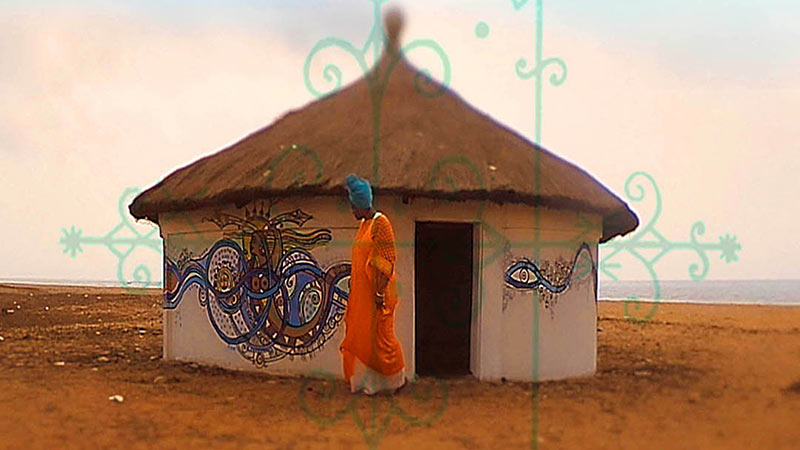
Director: Régine Romain
Assistant Director: Olatoundji Fagbenro
Executive Producer: Régine Romain
Producers: WaWaWa Diaspora Centre and Trinity Empire
"Brooklyn to Benin: A Vodou Pilgrimage" begins with an aerial view of the Route des Esclaves (Slave Road) in Ouidah, which terminates at the Atlantic Ocean. Millions of captured Africans were shipped off into slavery for hundreds of years from this location in Benin (formerly Dahomey), West Africa. In tandem to the shifting gaze from the road to the ocean, a traditional prayer is spoken in Fon, an indigenous language of the region, and is performed by Adissowé, a Vodou high priestess.
As the invocation honors the four corners of the earth and offers reverence to the mysteries of nature, a woman emerges into view. She is a daughter from the other side of the water, who has now returned to the original homeland of her Haitian ancestors. The viewers follow her slow steady walk across Ouidah beach, as she becomes the narrator and offers the historical context of the film, free of the traditional Western bias and stereotypes of Vodou and its practitioners.
The narrator is Régine Romain and she shares her three-year journey documenting the survival of traditional African religion in the Americas. Still photographs of ceremonies and shrines in Brooklyn, NY; southern United States; Central America; and Haiti are displayed. The camera then trails the narrator as she enters a shrine for Aïda Wedo, an ancient Mami Wata divinity amidst the evocative sounds of a Haitian folksong for the exact same deity, affirming that the spirits of Vodou “c’est bon,” are good.
Viewers continue to follow her journey across the sands toward the historic Door of No Return. Each step is a powerful affirmation that she is a descendent of survivors. As the narrator states “honor one’s God fearlessly,” her footsteps fade into a montage of women in traditional dress, singing and dancing in praise and devotion. “Brooklyn to Benin” creates an alternative cinematic experience of Vodou grounded in honor and respect.
Ser Grande

Directed by Karen Rossi
2018
The daily life of Juan, Rushian and Ivianyd, three Puerto Rican teenagers, is challenged when they decide to participate in a series of workshops to discover their aspirations and overcome personal limitations. The support of new mentors provokes awareness, but moving forward is not so simple. Obstacles pertaining social, emotional and sexual identity issues are part of this choral portrait on the margins of Caribbean society.
Random Acts: Hotchi

Written by Lisa Smith and Jason Smith
2017
Jason and Lisa Smith are British Romany Traveller filmmakers from Worcestershire. Jason has been deaf since birth and wears a Cochlear implant, and is an aspiring writer. Lisa is also a creative writer with an interest in spoken word and developing passion for filmmaking. Both are strong advocates for their community.
Jason and Lisa were pleased to cast deaf actor Lee O'Brien as their lead actor.
3000 Nights

Directed by Mai Masri
2015
Inspired by a true story and shot in a real prison, 3000 Nights traces a young mother’s journey of hope, resilience and survival against all odds.
Accused of helping a teenage boy on the run, newlywed Palestinian schoolteacher, Layal finds herself incarcerated in a top security Israeli prison for Palestinian and Israeli women. After Layal discovers that she is pregnant, the prison director pressures her to abort the baby and spy on the Palestinian inmates. Terrified but defiant, Layal gives birth to her child in chains.
Through her struggle to raise her son behind bars, Layal manages to find a sense of hope and meaning to her life. When prison conditions deteriorate and the Palestinian prisoners decide to strike, the prison director warns her against joining the strike and threatens to take her child away. In a moment of truth, Layal is forced to make a choice that will forever change her life.
This video is exclusively available to view for attendees of the 2021 Mellon Symposium "Visions for Liberation: Third Cinema Revisited," April 14-16, 2021, hosted by Haverford College's Hurford Center for the Arts and Humanities. Unauthorized sharing of this link is prohibited.
Schedule
All times are EST
Wednesday, April 14
12:00 p.m.
Keynote Lecture by Sonya Childress: Freedom Dreams Refracted
BIPOC nonfiction filmmakers in the west have long trained their lenses on sociopolitical issues. Rooted in identity politics, the children of the Third Cinema deftly wielded the camera as a tool to resist dehumanizing imagery and animate protest movements. Today’s generation leans into new radical visions. Through recalibrated power dynamics, new ethical frameworks, bold aesthetic departures, collective organizing, deep commitment to justice, and an emphasis on healing, BIPOC filmmakers are at the vanguard of a new cinematic rebirth, once again proving the significance of the camera to our liberation.
1:30-3:00 p.m.
Panel 1: Puerto Rican Documentary Filmmakers: Works from La Isla a La Diáspora
- Moderator: Miasarah Lai
- Panelists: Nadia Halgren, Gisela Rosario Ramos, Karen Rossi
Veteran filmmakers Nadia Halgren, Karen Rossi, and Gisela Rosaio Ramos reflect on the representation of Puerto Ricans in documentary stateside and on the island. They consider how their identity has influenced their documentary work in front and behind the camera, and where they see Puerto Rican documentary cinema going forward.
Thursday, April 15
10-11:15 a.m.
Panel 2: Anti-Roma Racism On and Off Screen
- Moderator: Mariangela Mihai
- Panelists: Luiza Medeleanu, Alina Șerban, Lisa Smith
From romantic rebels and nomads, to fetishized femme fatales, to victims of state and communal violence, we will look at the how limited visual representation of the Roma community begets inescapable stereotypes that further its marginalisation. Luiza Medeleanu will help us contextualise the Roma image in cinematography and cultural media and the political stakes that shape it. Alina Serban and Lisa Smith will screen samples from their films and will discuss their positionalities as Roma women filmmakers; the stories they are trying to tell and why; and how anti-Roma racism and institutional marginalisation affect their lived experiences, activism, and filmmaking.
1:30-3:00 p.m.
Panel 3: Palestine at the Center: A Conversation with Filmmakers Annemarie Jacir and Mai Masri
- Moderator: Laura Menchaca Ruiz
- Panelists: Annemarie Jacir, Mai Masri
Join us for an in-depth conversation with acclaimed Palestinian filmmakers, Annemarie Jacir and Mai Masri. We’ll discuss their prolific careers in the world of independent film and learn about how their work is engaging social and political concerns across Palestine and beyond.
Co-sponsored by the Division of Humanities & Practicing Arts, Al-Quds Bard College for Arts and Sciences, Al-Quds University.

Friday, April 16
10-11:15 a.m.
Panel 4: Cinematic Subversions: Feminist Politics in Southeast Asian Cinema
- Moderator: Emily Hong
- Panelists: Anna Har, Anocha Suwichakornpong
This panel will explore the ways that filmmakers’ own journeys of feminism inform the radical possibilities of “making films politically” (Godard) in Southeast Asia. We will ask why and how feminism matters in the process of making films, and how filmmakers grapple with choices about pushing the envelope not only politically but also aesthetically. Grounding our conversation in the constantly shifting political context of repression and revolution, we will ask, what are the dominant gazes and discourses that makers seek to contest and how do they broach the “unspeakable,” including censored or taboo topics through their work? Finally, how do filmmakers weigh the multiple and sometimes conflicting demands of Western and non-Western audiences as their works circulate across borders?
12:00-1:15 p.m.
Panel 5: Experimental Approaches to Documentary Film: A Conversation With the Smile4Kime Team
- Panelists: Elena Guzman, Cybee Bloss, Laura Menchaca Ruiz, Shiko Njoroge '21
This event will feature a special conversation with the Smile4Kime creative team and their work in creating an experimental documentary film. The team will explore the use of animation, non-linear storytelling, and installation in representing alternative lived experiences and realities in non-fiction films. Audience members will get a special sneak peek of the film's trailer and website.
1:30-3:00 p.m.
Panel 6: Ancestral Assemblages: Representing African Diaspora Spirituality in Film
- Moderator: Elena Guzman
- Panelists: Artist Marcia X, Barbara McCullough, Régine Romain
This panel will feature filmmakers who explore African diaspora spirituality in film. Artists will talk about the representation of African diaspora religion and spirituality in film and the experimental cinematic language they employ.
Watch
Presenters

Sonya Childress
Sonya Childress is a cultural strategist and impact producer. She believes in the power of film to support social justice movement-building. Sonya serves as Senior Fellow with the Perspective Fund, a philanthropic resource for documentary film and impact campaigns, where she conducts field-building research, writing and initiatives. Sonya previously served as the Director of Partnerships and Engagement for Firelight Media, where she led impact campaigns for director Stanley Nelson’s films, including Freedom Summer, Freedom Riders, Tell Them We Are Rising: The Story of Black Colleges and Universities and The Black Panthers: Vanguard of the Revolution, and created a fellowship for impact producers of color. Sonya has worked with Active Voice, California Newsreel, Kartemquin Films, ITVS and Working Films, and has advised countless filmmakers on their impact strategies; including Yance Ford (Strong Island), Peter Bratt (Dolores), Steve James (The Interrupters), Cristina Ibarra & Alex Rivera (The Infiltrators), Byron Hurt (Hip-Hop: Beyond Beats and Rhymes) and Jeff Zimbalist (Favela Rising). She is a trustee of The Whitman Institute, a member of the Brown Girls Doc Mafia, and a facilitator of the Global Impact Producers group. Sonya proudly reps her hometown of LA, her African American and Puerto Rican heritage, and her two children.
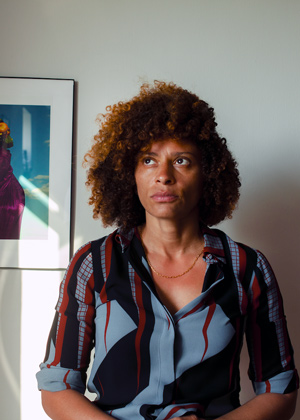
Nadia Hallgren
Nadia Hallgren is an award-winning filmmaker from The Bronx, New York. She directed the emmy-nominated documentary BECOMING and academy-award shortlisted short documentary After Maria. She is the recipient of the special jury prize at SXSW for She’s the Ticket and a Webby for Public Service and Activism for her film Gavin Grimm vs. Nadia is a leading documentary cinematographer, credits including Sundance award-winner Motherland and Academy Award-nominated Trouble the Water. Nadia is a member of the Academy of Motion Picture Arts and Sciences and an alum of the International Center of Photography.

Anna Har
Anna Har began working in the field of human rights and films after she studied film and anthropology. She has vast experience in training and producing films with different grassroots communities in South East Asia and pioneered community filmmaking for organising and activism in Malaysia in the 1990s. She led and directed a multiple award-winning TV magazine series for young women's empowerment, and is behind many of the films produced by civil society on community and human rights issues in Malaysia. She is one of the founders of FreedomFilmFest, Malaysia’s own international human rights documentary film festival and currently serves as the executive director of Freedom Film Network, an organisation dedicated to producing and using films for social impact.

Annemarie Jacir
Annemarie Jacir is one of the leading figures of the Arab New Wave, with two films premiering as official selections of the Cannes Film Festival, one in Venice, Berlin, Locarno, and Telluride. Her debut film Salt of this Sea was the first feature film directed by a Palestinian woman. All three of her feature films were Palestine's official Oscar entries. Founder of Philistine Films, she collaborates regularly with fellow filmmakers as an editor, screenwriter and producer. She has taught at Columbia, Bethlehem, Birzeit University and in refugee camps in Palestine, Lebanon and Jordan. She has served as a jury member in Cannes and Berlin, is a member of the Academy of Motion Picture Arts and Sciences as well as the British Academy of Film and Television Arts (BAFTA). She is a cofounder of the newly established Dar Yusuf Nasri Jacir for Art and Research in Bethlehem, an artist-run space in her hometown of Bethlehem.

Mai Masri
Mai Masri is a Palestinian filmmaker who grew up in Beirut and studied film at San Francisco State University and UC Berkeley, USA. She founded Nour Productions with her late husband, filmmaker Jean Chamoun, and directed and produced a number of films that were screened in over 100 countries. Her work earned international recognition and won over 90 awards, including the Trailblazer Award at MIPDoc, Cannes (2009); the First Prize at the Asia-Pacific Screen Awards (2007); and the lifetime Achievement Award at El Gouna International Film Festival (2019). Mai wrote and directed her feature narrative film, 3000 Nights (2015), which had its world premiere at Toronto International Film Festival, and was screened in several major festivals where it received over 28 international awards.
Mai’s filmography includes Children of Fire (1990), Hanan Ashrawi: A Woman of Her Time (1995), Children of Shatila (1998), Frontiers of Dreams and Fears (2001), Beirut Diaries (2006), and 33 Days (2007). She also co-directed with her late husband Jean Chamoun, Under the Rubble (1983), Wild Flowers (1986), War Generation – Beirut (1988), and Suspended Dreams (1992). She produced, Hostage of Time (1994), In the Shadows of the City (2000), Women Beyond Borders (2004), and Lanterns of Memory (2009).
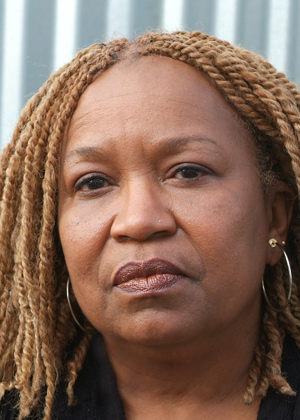
Barbara McCullough
Born in New Orleans, Louisiana to a family of traditional and contemporary jazz musicians, Barbara McCullough has spent most of her life in southern California. A graduate of the University of California Los Angeles (UCLA), she received a BA in communication studies, MFA in film and television production and is a part of UCLA film school graduates termed, "The LA Rebellion." Her goal as an artist is to tap the spirit and richness of her community expelling stereotypes, all with an eye befitting the stature and uniqueness of her subjects.
Before documentaries, experimental film and video were her first love. Her projects include: Water Ritual An Urban Rite of Purification, Shopping Bag Spirits and Freeway Fetishes: Reflection on Ritual Space, Fragments and The World Saxophone Quartet. Her most recent project, HORACE TAPSCOTT: MUSICAL GRIOT is a documentary film on musical genius, community activist, and jazz musician, the late Horace Tapscott. Ms. McCullough aims to continue the storytelling tradition of Zora Neale Huston and generations of story collectors and myth makers—only her platform is visual. Dedicated to the preservation of the heritage of the African American artist/cultural worker, she documents and shares their personal stories and art processes.
Her projects are screened/exhibited in universities, galleries, museums and film festivals in the United States and abroad. A partial list includes: the Tate Modern, Hammer Museum, Biennale du Rennes, Museum of Art Sao Paulo, Lenbachhaus Museum, Whitney Museum, Brooklyn Museum, Brooklyn Academy of Music, British Film Institute, Irish Film Institute, California African American Museum, Geffen Museum of Contemporary Art, Williams College Museum of Art, Art & Practice, Sprueth Magers Gallery, Roberts & Tilton Gallery and the Anthology Film Archive. Festivals include: Metakino Essay, Houston Arts, New Orleans, Black Star, Pan African, African Movie Academy Awards and African Diaspora International Film Festival.
A twenty-five year veteran of the film industry in special visual effects production, Ms. McCullough has been a professor and chair of visual effects at Savannah College of Art and Design (SCAD). The experimental film Water Ritual #1: An Urban Rite of Purification was awarded an Avant Garde Masters Grant by the National Film Preservation Foundation in 2010.
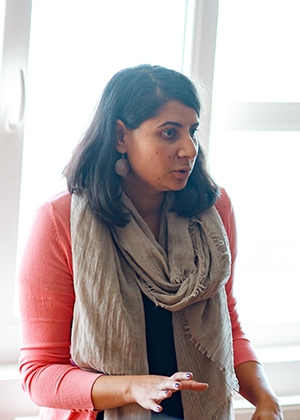
Luiza Medeleanu
Luiza Medeleanu is PhD student in the field of Cultural Studies at the Multidisciplinary Doctoral School "Space, Image, Text, Territory,” Center of Excellence in Image Study (CESI), Faculty of Letters, University of Bucharest with the doctoral thesis: "The Roma image in cinematography and cultural media. Ethics of fictionality and cultural identity.” In this paper she aims to analyze the Roma image in the cinematographic and multimedia art in Europe. The question from which she starts is whether the representation of Roma in films and TV series influences the formation of their cultural identity and how Roma are perceived by others in society. She graduated Faculty of Philosophy, University of Bucharest and Faculty of Foreign Languages and Literatures, University of Bucharest, the Rromani-English department, and has a Master in Philosophy from the University of Bucharest and one in Anthropology from SNSPA. Since 2010, she has worked in the Roma non-governmental field. In 2019, she was a scientific consultant on Roma culture in the docu-drama short film Letter of Forgiveness, directed by the Roma actress and director, Alina Șerban. This docu-drama is the first short film about Roma slavery from an inside perspective, Alina Șerban being a Roma actress. She currently works as an educational expert at the Roma Education Fund Foundation, where she coordinates educational activities with an intercultural character, but also developed intercultural training methodologies for teachers, for children and parents.

Shiko Njoroge
Shiko Njoroge is a rising Senior at Swarthmore College, majoring in Sociology and double minoring in Film and Media Studies and Black Studies. Her dream career is to write and direct films that bring a spotlight to marginalized communities and is truthful and authentic in their representation particularly in the Black community and other BIPOC communities. Her most recent work is a short experimental film titled Blackskin. In it, she uses the non-narrative genre to combat false anti-Blackness ideas on the inferiority of Black femme and non-binary folk. Using the poetry from Claudia Rankine’s Citizen: An American Lyric, the film showcases the motifs of Black power, strength resilience, beauty and justified rage to expose the pain and trauma caused by a racist society but also Black joy and contentment- the beautiful strength of loving yourself in spite of anti-Black oppression. She is excited to be a part of Smile4Kime and believes wholeheartedly in its ability to explore the importance of mental health awareness in the Black community and the BIPOC community at large.

Régine Romain
Régine Romain is a Haitian-American artist, educator, visual anthropologist and equity coach living in Brooklyn, NY. She has 20+ years of teaching, training, and supporting diverse communities on issues of race, culture and representation through participatory and reflective learning practices. As a storyteller and cultural producer, she uses photographs/film/performance as mixed-media tools to ignite critical consciousness and radical change.
Régine is the author of Nou Pap Bliye: A Haitian Coloring Book (2020) and the founder/director of the WaWaWa Diaspora Centre. She is also the director/producer of the award winning short film and podcast Brooklyn to Benin: A Vodou Pilgrimage (2016) and Vodou Roots: A Love Story Musical (2018). Régine received her BS in International Studies from Bowie State University and MA in Photography and Urban Culture from Goldsmiths, University of London.

Gisela Rosario Ramos
Gisela Rosario Ramos is Macha Colón, an un-disciplined artist currently based in Puerto Rico. She studied Black and Puerto Rican Studies and Film and Media Studies at Hunter College, NYC, where she also worked as a documentary editor and was part of Eduardo Alegria’s performance shows in PS 122. Upon returning to Puerto Rico, she worked as Artistic and Programming Director at Casa de Cultura Ruth Hernández, organizing cultural events while continuing to edit and direct films. Her award-winning short documentary El Hijo de Ruby has been shown in international festivals. She performs rock/pop music with her band Macha Colón y Los Okapi in alternative venues since 2008. They released their first album Tanquecito de amor (Little Tank of Love) in 2016 and performed in NYC at the Loisaida Festival, La Marqueta Retoña in El Barrio and the New New Museum. Recently, she won an international documentary competition to film Love Letters to an Iconess, a documentary about a Puerto Rican queer diva who’s now in her seventies. She’s an Art Matters Foundation and NALAC grantee and received the first Resiliency Award through the Arts from the National Museum of Puerto Rican Arts & Culture in Chicago. In 2020, received the inaugural William Greaves Fund for mid-career filmmakers from Firelight Media. Also, she is a 2021 USA Artist Fellowship recipient. She’s in post-production of her first feature film, Perfume de Gardenias,which has received funds from Ibermedia and Tribeca Film Institute to be released in 2021.

Karen Rossi
Karen Rossi (Puerto Rico, 1974) has worked in the film industry since 1998. She’s the producer, director, and editor of Isla Chatarra (Scrap Island, 2007) which was sponsored by the first edition of DocTV Iberoamérica and obtained an Emmy (Suncoast) for Best Cultural Documentary. She directed the short documentary film Something More (2009) for the television series Zona Franca (Open Spaces), and is the producer of the shorts series It’s your right. Defend it. (2014), also awarded with an Emmy (Suncoast). In 2018 she premiered her first feature-length documentary film Ser Grande (When I grow up) with her production company Aurora Docs. Early in her career, Karen was assistant editor in Alfonso Cuaron’s Y Tu Mamá También.

Alina Șerban
Alina Șerban is the winner of Best Actress Award at the German Actors Guild Awards 2020 for her leading role in Gipsy Queen, a nominee for Best Actress of the German Film Awards 2020 and the representative of Romania at The Cannes International Film Festival 2018 for her leading role in Alone at My Wedding. The first one in her family to graduate high-school, she succeeded to graduate the Tisch School of the Arts in New York and obtained a master’s from Royal Academy of Dramatic Art in London, becoming an award-winning actress and the first Roma woman theatre and film director of Romania. For her first leading role in cinema, Serban stars in Marta Bergman’s feature film Alone at My Wedding, which premiered at the Cannes International Film Festival in 2018 and earned her several Best Actress awards. She also stars as a boxer in Huseyin Tabak’s Gipsy Queen, a German-Austrian production. For this performance, she won the Best Actress award at POFF Black Nights Film Festival Tallinn 2019, the Best Actress award at The German Actors Guild Awards was nominated for the German Film Academy Award - LOLA. As a playwright, Serban pioneered Roma feminist political theatre, with three plays to her name by the age of 29, becoming the first Roma woman director to have a play included in the permanent repertoire of a state theatre in Romania in 2018. In 2020, Serban made her debut as a filmmaker with Bilet de iertare/Letter of Forgiveness - the first film about the Roma slavery written and directed from a Roma perspective.
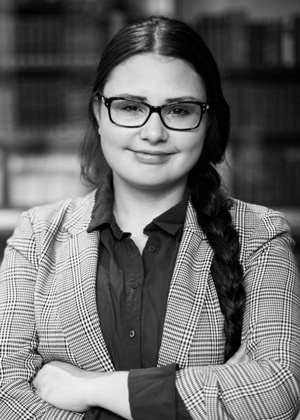
Lisa Smith
Lisa Smith has an MA in Education and is Youth Editor at Travellers’ Times a national magazine for Roma and Travellers. She supports young people through journalism, media and training programmes. She has worked with the BBC as a researcher and consultant and is currently a creative producer specialising in drama and documentary-based shorts. Her debut short film Hotchi was created in collaboration with Channel 4 and Arts Council England.

Anocha Suwichakornpong
Anocha Suwichakornpong is a filmmaker and producer. Her work is informed by the socio-political history of Thailand. By the Time It Gets Dark, Anocha’s second feature, centers around a student massacre that took place in 1976 by Thai state forces and far-right paramilitaries at Thammasat University in Bangkok. She graduated from an MFA film program at Columbia University. Her thesis film, Graceland, became the first Thai short film to be officially selected by Cannes Film Festival. Mundane History, her first feature, won numerous awards including the Tiger Award at Rotterdam. By the Time It Gets Dark premiered in Locarno and has screened in festivals such as Toronto, BFI London, Viennale, and Rotterdam. The film won three Thailand National Film Awards including Best Picture and Best Director. By the Time It Gets Dark was chosen as Thailand’s Oscar entry for Best Foreign Language Film.
Anocha founded Electric Eel Films, a production house based in Bangkok. She has produced many short films and features, including Wichanon Somumjarn’s In April the Following Year, There Was a Fire, Lee Chatametikool’s Concrete Clouds, and Josh Kim’s How to Win at Checkers (Every Time). In 2014, she was an artist-in-residence at Centre for Contemporary Art (CCA) in Singapore. In 2016, Anocha served on the Jury for the Tiger Awards at International Film Festival Rotterdam.
In 2017, Anocha, together with Visra Vichit-Vadakan and Aditya Assarat founded Purin Pictures, an initiative to support Southeast Asian cinema. In 2019, she was named a Prince Claus Laureate. From 2018-2020, Anocha was a visiting lecturer at the Department of Art, Film, and Visual Studies, Harvard University.

Artist Marcia X
Artist Marcia X is a Puerto Rican American artist working with installation, performance, and film. Their art practice and research is a continuous development of what they call the existential-cultural crisis women of color experience in the Diaspora. Currently, they are completing their PhD in Philosophy through Universitat Autónoma de Barcelona and EINA, exploring Afro-Indigenous subjectivity in phenomenology and dance.
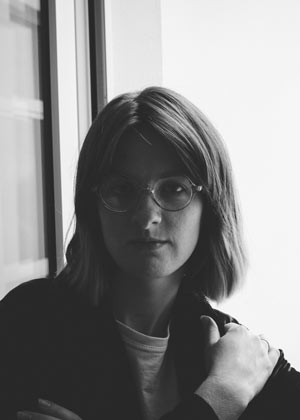
Cybee Bloss
Cybee is a nonbinary producer and animator who tells surreal stories of intimacy, friendship, and mental health. Originally from rural West Virginia, they have called Philadelphia home for over a decade. They spend most of their time at Phillycam, Philadelphia’s public access tv station, producing content with other community members. They recently created a series called Theydies and Gentlethems, which is a playful guide to using trans and nonbinary affirming language for adults. When they are not working on video projects, they are teaching media arts workshops in their neighborhood, gardening with their twin, or dm’ing a dungeons and dragons campaign. They are a recipient of Philadelphia Independent Media Fund and the Leeway Foundations Art and Change Grant. Their work has also received support from Scribe Video Center and The Puffin Foundation.
Organizers

Elena H. Guzman
Elena H. Guzman is a documentary filmmaker, educator, and anthropologist. She earned her Ph.D. in Anthropology from Cornell University. Her research focuses on the performative imaginings of the nation, state, and cross border communities on the southern border of Haiti and the Dominican Republic. Currently, she is working on revising her dissertation into a book manuscript entitled Entangled Borders: Performance on the Edge of Nations in Haiti and the Dominican Republic. In addition to her work as a scholar, Elena is also a documentary filmmaker. She co-directed a film entitled Bronx Lives (2014) that explores homelessness for Latinx and African Americans in New York. She is also the director and executive producer of the film Smile4Kime, currently in post-production, that explores the intersections of race, gender, and mental health. As a part of her work in film, she co-founded a feminist filmmaking collective called Ethnocine and is a producer of the podcast Bad Feminists Making Films.

Emily Hong
Emily Hong is a Seoul-born and New York-raised visual anthropologist and filmmaker. Her research interests include indigenous media, sensory ethnography, law and society studies, feminist epistemology, and the anthropology of collaboration. Emily’s research, films, and activist engagements are largely rooted in Thailand and Myanmar, where she has spent a decade, first as a human rights campaigner and trainer, and later as a filmmaker and researcher. Emily’s non-fiction film and video work combines feminist, decolonial and ethnographic approaches with impact-oriented storytelling. Her films GET BY (2014), NOBEL NOK DAH (2015), and FOR MY ART (2016), have explored solidarity and labor, womanhood and identity in the refugee experience, and the gendered spectatorship of performance art, respectively. Her current project ABOVE AND BELOW THE GROUND features indigenous women and punk rock pastors leading an environmental movement in Myanmar’s North. Emily is the co-founder of Ethnocine and Rhiza Collectives, co-host and producer of the Bad Feminists Making Films podcast, and a core member of the Asian American Documentary Network (A-DOC). She has screened and exhibited her work at the San José Museum of Art, Johnson Museum of Art, and at international film festivals. Her research and films have been supported by the National Science Foundation, Wenner-Gren Foundation, Center for Asian American Media, Bertha Foundation, and the Tribeca Film Institute.

Miasarah Lai
Miasarah Lai is a Community Manager at Brown Girls Doc Mafia and a freelance documentary filmmaker who works as a camera operator, editor, and producer. She has worked internationally in Honduras, Ghana, Myanmar, China, Nicaragua, Romania, and the U.S. She has produced work for American Airlines, Nike, NBC Universal, University of Chicago, among others. Her work has screened at Big Sky Film Festival, American Documentary Film Festival,San Jose Museum of Art, The Block Museum of Art, & Herbert Johnson Museum of Art. She has received grants from the Academy of Arts and Sciences, Camden International Film Festival, Double Exposure Film Festival, The Propeller Fund, and a DVID fellowship from Kartemquin Films. Miasarah is a co-founder of Ethnocine Collective and is a member of Asian American Documentary Network.
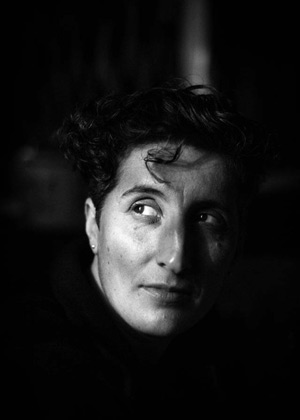
Mariangela Mihai
Mariangela Mihai is an Anthropology PhD candidate at Cornell University and a filmmaker. Her multi-modal work uses feminist filmmaking, poetry, and activist ethnography, to explore Indigenous resistance on the India-Myanmar-Bangladesh borderlands. She is co-founder of Ethnocine, a feminist filmmaking collective of women of color and queer scholars committed to push the boundaries of documentary storytelling through intersectional feminist and decolonial practices. Mariangela's films have screened at international film festivals, universities, museums, and other public and art institutions in Athens, Bangkok, Chiang Mai, Paris, New York, Yangon, New Orleans, Los Angeles, and San Jose.

Laura Menchaca Ruiz
Laura Menchaca Ruiz is a sociocultural anthropologist and media maker from the borderlands of the U.S. Southwest. Her research and visual work are rooted in multi-sensory ethnography, epistemologies of the “global south,” feminist, gender and sexuality studies, decolonial approaches to space and place, and beauty as a critical method. Laura is a Visiting Assistant Professor in Media Studies and the Division Head of Humanities and the Practicing Arts at Al-Quds Bard College; Co-Founder and Creative Director at Element Media; Co-Founder of the feminist filmmaking collective, Ethnocine; and a Producer for the Bad Feminists Making Films podcast. Her creative work celebrates the marks that people make on the world, highlighting the extraordinary in the ordinary, and her scholarship explores the reach for autonomy amidst marginalizing constraint. Her approach to all her work treasures the local, the small-scale, the personal, the eccentric, the intimate. She is currently working on several media and film projects, including Hay Betl7em—a social media-based docuseries (Co-Director & Co-Producer), and a feature non-fiction film, Smile4Kime (Editor). Her work has been featured via the Society for Visual Anthropology, Fieldsights/Society for Cultural Anthropology, and at El Movimiento de Cultura y Arte Latino Americana (MACLA) in San José. Her research has been supported by the Palestinian American Research Center, Society for the Humanities, and the Social Science Research Council. She holds a PhD from Cornell University, a MA from Columbia University, a BA from San Francisco State University an an AA from Palomar College.



